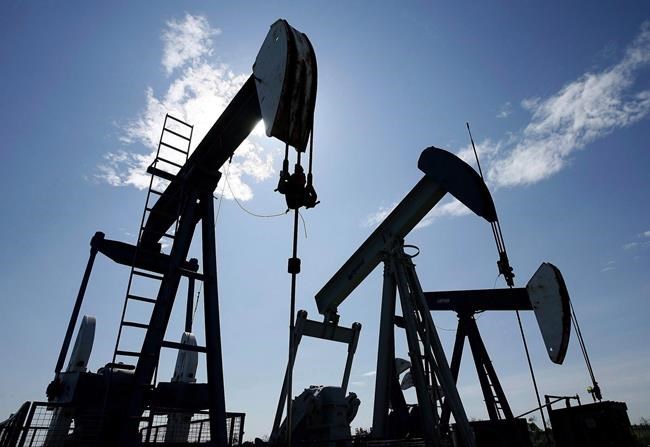EDMONTON — Unpaid municipal taxes from the Alberta oilpatch keep rising despite the industry's boom, the province's rural communities say.
"This is the worst ever," said Paul McLauchlin, president of Rural Municipalities of Alberta, which released the data Tuesday. "We've got a serious problem."
The group says energy companies now owe municipal districts in which they operate a total of $268 million. That's up more than six per cent from last year and up 261 per cent since 2018, when the association began keeping track.
As well, the rate of nonpayment is increasing.
McLauchlin said there was $53 million left unpaid in 2022 and $38 million in 2021.
The growing tax debt is occurring at a time of record profits in the industry. McLauchlin said nearly half the unpaid taxes are due from operating companies.
"You've got the highest commodity prices in a generation, free cash flow like no one's ever seen. You think that people would pay their bills."
It's the third year the municipalities have released a tally of unpaid taxes.
Previously, the province’s United Conservative Party government told the Alberta Energy Regulator that it "may" use factors such as tax arrears in ruling on whether to allow transfers of energy assets. Municipalities can submit statements of concern on applications for licence transfers if the companies involved have unpaid taxes.
Municipalities can also attach liens to property if taxes go unpaid.
McLauchlin said that's no longer enough.
"I don't think you can use kid gloves to deal with this. I don't think 'nudge, nudge, please pay' is working," he said. "You need to use regulation and you need to use enforcement."
Municipal Affairs Minister Rebecca Schulz said the province is aware of the survey results and agrees with the Rural Municipalities of Alberta that the problem of unpaid oil and gas taxes to rural municipalities is unacceptable.
She said the government is consulting with industry, municipalities, and landowners to explore options to ensure taxes are paid as a condition of license transfer.
"The vast majority of companies operating in Alberta’s energy sector pay their local property taxes but some have not, leaving municipalities with hard decisions about raising taxes for other taxpayers or cutting services," Schulz said in a release Tuesday night.
"We will be in contact directly with delinquent companies, reminding them of their tax responsibilities."
Jay Averill, spokesman for the Canadian Association of Petroleum Producers, said the industry knows it needs to pay its taxes.
"The revenues generated from industry to municipalities play a significant role in maintaining quality of life for rural communities," he said in a statement.
"(The association) also acknowledges that we continue to see the lagging effects of a multi-year downturn for the oil and gas sector. We are committed to continuing to work with the province's liability management system."
The Alberta Energy Regulator said in an email Tuesday night that it does not have jurisdiction to enforce payment of these taxes.
"Municipalities are responsible for collecting and enforcing unpaid municipal taxes."
Last March, when the municipalities released their 2021 total, a spokesman for Alberta Energy Regulator said the agency is working with municipalities and the province to find solutions but can only implement government policy.
But McLauchlin calls the regulator "complicit" in the problem. He said many of the remaining tax deadbeats, most of which are not members of industry associations, are companies so marginal the regulator is afraid to crack down on them and force them to close their doors before they've cleaned up their wells.
Those wells would then go to the Orphan Well Association, which already has a backlog of unremediated wells that has forced the Alberta and federal governments to bail it out.
McLauchlin said the tax tally and the growing environmental liability of unreclaimed wells on the Alberta landscape are linked.
"(The regulator) uses surface payments and property tax to prop up companies that shouldn't be operating," McLauchlin said. "That's why they're not enforcing it.
"If they were, (the companies) wouldn't meet their environmental responsibilities and these companies would go into some level of receivership."
In 2020, the federal government provided $1 billion for well cleanup in Alberta. The province also requires operators to remediate a certain percentage of their wells every year and has introduced programs that allow the industry to concentrate their cleanup efforts in one area to improve efficiency and reduce cost.
But environmental liabilities continue to grow. Alberta needs to figure something out, McLauchlin said.
"What are we doing here? What's our plan?"
This report by The Canadian Press was first published March 7, 2023.
— Follow Bob Weber on Twitter at @row1960
Bob Weber, The Canadian Press



